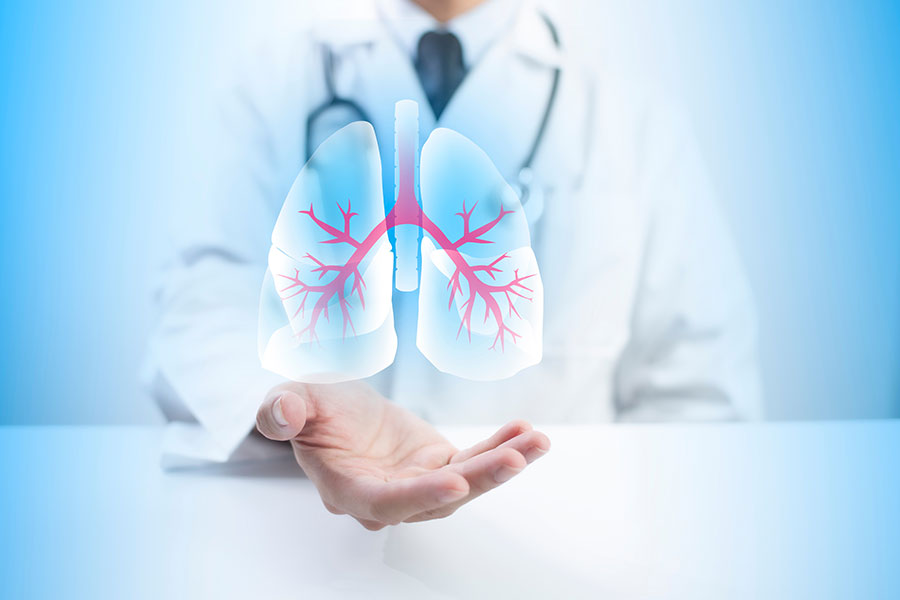When it comes to respiratory health, recognizing when to see a specialist can make all the difference. A pulmonologist is a medical doctor who specializes in the diagnosis and treatment of lung and respiratory disorders. Understanding the signs and symptoms that warrant a visit to a pulmonologist can help you seek timely medical intervention and ensure better health outcomes. In this article, we will explore the key indicators that suggest it’s time to consult a pulmonologist.
Understanding the Role of a Pulmonologist
A pulmonologist is trained to manage a wide range of respiratory conditions, including asthma, chronic obstructive pulmonary disease (COPD), pneumonia, tuberculosis, and other complex lung diseases. They use a variety of diagnostic tools and treatments to help patients breathe easier and improve their overall respiratory health.
Signs and Symptoms That Require a Pulmonologist’s Expertise
1. Persistent Cough
A cough that lasts more than three weeks can be a sign of an underlying respiratory condition. While occasional coughing is normal, a chronic cough may indicate conditions such as chronic bronchitis, asthma, or even lung cancer. If your cough is persistent and doesn’t seem to improve with over-the-counter medications, it’s time to see a pulmonologist.
2. Shortness of Breath
Experiencing shortness of breath, especially during everyday activities, is a red flag. This symptom can be associated with a variety of lung conditions, including asthma, COPD, and interstitial lung disease. Shortness of breath that worsens over time should not be ignored and warrants a professional evaluation.
3. Wheezing
Wheezing is a high-pitched whistling sound that occurs when breathing. It is often a sign of airway obstruction or inflammation. Conditions like asthma and COPD commonly cause wheezing. If you notice wheezing, especially if it’s recurrent or accompanied by other symptoms, consulting a pulmonologist is essential.
4. Chronic Chest Pain
Chest pain that persists for more than a few days can be indicative of serious respiratory issues. While chest pain is commonly associated with heart problems, it can also be a symptom of lung conditions such as pleurisy, pulmonary embolism, or pneumothorax. A pulmonologist can help determine the cause of the pain and provide appropriate treatment.
5. Frequent Respiratory Infections
If you find yourself frequently battling respiratory infections like bronchitis or pneumonia, it could be a sign of an underlying issue with your lungs or immune system. Recurrent infections weaken the respiratory system and require expert intervention to prevent complications.
Diagnosing and Treating Respiratory Conditions
Pulmonologists use a variety of diagnostic tests to identify respiratory conditions. These may include:
- Pulmonary Function Tests (PFTs): These tests measure how well your lungs are working.
- Chest X-rays and CT Scans: Imaging tests that provide detailed pictures of your lungs.
- Bronchoscopy: A procedure that allows the doctor to look inside your airways using a thin, flexible tube with a camera.
- Blood Tests: These can help identify infections or other underlying conditions affecting the lungs.
Once a diagnosis is made, treatment plans are tailored to the specific condition and the patient’s overall health. Treatments may include medications, respiratory therapies, lifestyle changes, and in some cases, surgical interventions.
When to Consult Other Specialists
While pulmonologists are experts in respiratory health, certain symptoms may overlap with other medical fields. For example, women experiencing respiratory symptoms during pregnancy may benefit from consulting a gynaecologist in Patiala, as pregnancy can sometimes exacerbate respiratory issues. Additionally, if you’re dealing with fertility issues alongside respiratory problems, visiting an IVF center in Patiala can provide comprehensive care addressing both concerns.
Preventive Measures for Respiratory Health
Taking steps to maintain respiratory health can help prevent the development or worsening of lung conditions. Here are some preventive measures:
- Avoid Smoking: Smoking is a leading cause of respiratory diseases. Quitting smoking can significantly improve lung health.
- Reduce Exposure to Pollutants: Limit exposure to air pollutants, including secondhand smoke, chemicals, and occupational hazards.
- Practice Good Hygiene: Regular handwashing and avoiding close contact with sick individuals can prevent respiratory infections.
- Exercise Regularly: Physical activity strengthens the respiratory muscles and improves lung function.
- Get Vaccinated: Vaccinations for flu, pneumonia, and other respiratory infections can help protect your lungs.
Conclusion
Recognizing the signs and symptoms that necessitate a visit to a pulmonologist is crucial for maintaining respiratory health. Whether it’s a persistent cough, shortness of breath, or recurrent respiratory infections, timely consultation with a specialist can lead to early diagnosis and effective treatment. Additionally, preventive measures can help you maintain healthy lungs and overall well-being.
At Medlink, we are committed to providing expert healthcare services, including respiratory care, to ensure our patients receive the best possible outcomes. If you experience any of the symptoms discussed, don’t hesitate to seek professional medical advice and take proactive steps towards better respiratory health.

